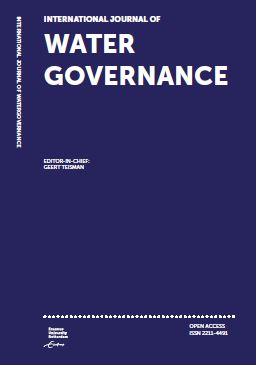A Political Ecology of ‘Apolitical’ Water Governance
Lessons Learned from Turkish Experience
Keywords:
Water governance, political ecology, environmental justice, TurkeyAbstract
Widely applied water governance practices, like the construction of dams, hydroelectricity
power plants, irrigation canals, reservoirs, and water infrastructure/sewage systems are globally
regarded as technical, expert-oriented and/or scientific issues. They are rhetorically detached from
socio-political contexts. Such governance practices are generalised as apolitical models, in which
their technocratic and market-driven natures are emphasised. However, their implementation is
frequently met with frustration by the local populations, based on the socio-environmental issues
that these practices arise. The water governance practices of Turkey are brought into greater focus
to assess these policies and their local implications, prepared with an apolitical understanding.
Accordingly, this article reviews the historical-discursive processes through which the current
water governance practices of Turkey have been shaped, and presents public reactions against
these practices. This article applies a political ecology framework to reinforce the concept of
environmental justice as the main social challenge to apolitical water governance practices.
Downloads
Downloads
Published
How to Cite
Issue
Section
License
Copyright (c) 2016 https://creativecommons.org/licenses/by/4.0/

This work is licensed under a Creative Commons Attribution-NonCommercial 4.0 International License.


